The Enduring Legacy and Impact of Dr. Who
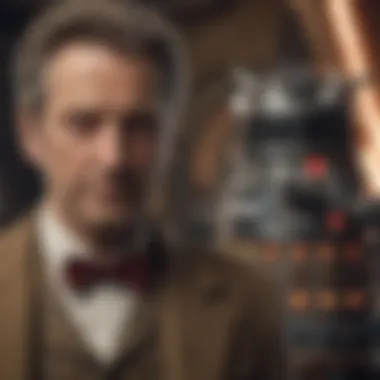
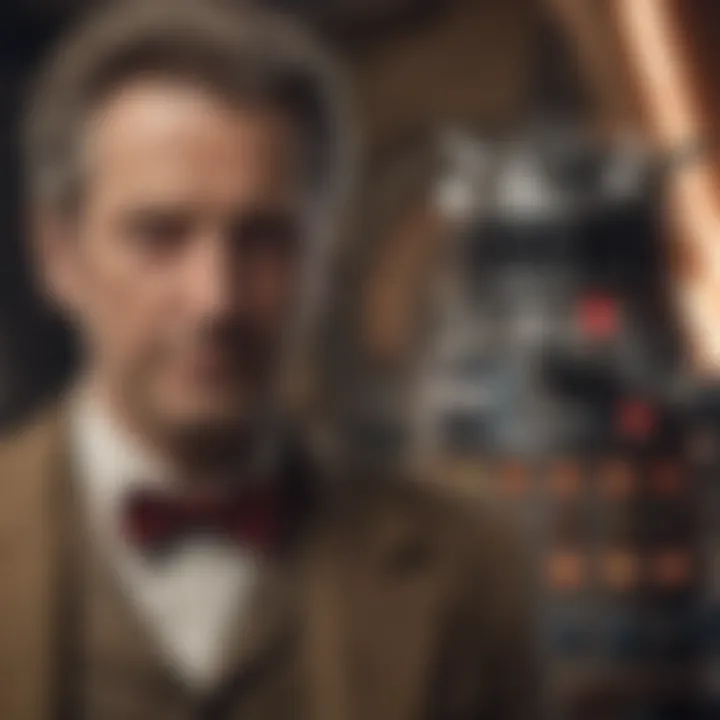
Intro
Since its debut in the early 1960s, Dr. Who has etched itself into the very fabric of television history. What began as a modest science fiction series quickly morphed into a global phenomenon, appealing to avid viewers across generations. The show's unique blend of time travel, whimsical storytelling, and even social commentary has captivated audiences and set it apart from the crowd.
But what is it about Dr. Who that maintains its robust cultural relevance? This article aims to peel back the layers of this iconic series, uncovering its rich narrative structure, complex character arcs, and influences on society and media.
In examining the threads of Dr. Who's legacy, we will explore how the journey of a time-traveling alien has become a mirror reflecting our own societal fluctuations over time. From the show's innovative storytelling methods to the depth of its characters, we will traverse its landscape and evaluate how it has not only withstood the test of time but also continues to evolve and inspire today.
From loyal fans discussing plots on forums to the emergence of Dr. Who merchandise, its mark on pop culture is indelible. By dissecting various aspects of the show, including its production insights and the fan engagement that thrives to this day, we uncover a multifaceted legacy that enriches our understanding of this esteemed series.
Get ready to traverse different timelines of storytelling; this exploration of Dr. Who is sure to engage those who hold a deep appreciation for cinema, television, and the cultural phenomena that shape our world.
Foreword to Dr. Who
The fascination with Dr. Who stretches far beyond mere entertainment; it roots itself deep into the cultural framework of modern television. Understanding this iconic series provides valuable insights into how narrative frameworks can evolve, how characters can resonate with audiences, and how complex themes surface in seemingly simple stories. The Doctor, as a character, serves as a mirror to society's ambitions, fears, and ethics, reflecting a myriad of cultural nuances.
This section serves to introduce the significance of Dr. Who, exploring not only its historical context but also its palpable influence on viewers. As we dive into history and cultural impact, we uncover why this series remains a landmark in television lore.
A Brief History
Dr. Who first graced our screens in 1963, a brainchild of the BBC crafted with the vision of engaging both young and old audiences alike. The premise itself was groundbreaking: a Time Lord traveling across time and space in the TARDIS, a time machine crafted to look like a British police box. It was a unique storytelling venture that invited viewers to abandon any concepts of linear time and explore narratives unrestricted by reality.
Throughout the decades, the show has undergone several revivals and transformations. The initial run lasted until 1989, before it faced a hiatus that left fans wondering about the fate of their beloved Time Lord. This lull in the 90s was alleviated by a telefilm in 1996, but it wasn’t until the 2005 revival that Dr. Who found itself permanently entrenched in pop culture. The reboot brought a fresh air to the show while preserving its rich legacy, introducing new generations to this narrative tapestry.
Cultural Significance
Dr. Who's impact on global culture is hard to oversell. At its core are themes that transcend age and cultural boundaries—courage in adversity, the value of friendship, and the complexities of morality. Over the years, the series has tackled monumental themes that reflect societal shifts and challenges.
The show's engagement with topics such as environmentalism, technology, and social justice has sparked discussions globally. For example:
- The portrayal of diverse characters in various story arcs enhances representation that many viewers didn’t see before.
- Science fiction serves as a daily platform where the complexities of ethics and reality are explored.
- The narrative flexibility of shifting genres allows it to flourish in a variety of storytelling approaches, from horror to comedy to thrillers.
"Dr. Who pushes the envelope of what science fiction can teach us about our own world. The adventures of the Doctor shape not just entertainment but also conversation, often shaping cultural understanding in ways that are profound."
The lasting legacy of Dr. Who lies in its ability to adapt and resonate with its audience on multiple levels, making it a truly remarkable series worth exploration.
Narrative Structure of the Series
The narrative structure of a show like Dr. Who goes beyond just telling a story. It’s a framework that supports its themes and character development while engaging viewers emotionally and intellectually. The way the series employs time travel and storytelling techniques significantly shapes not just the plot, but also the audience's understanding of complex issues. Analyzing this structure helps to illuminate why Dr. Who resonates across generations, maintaining its relevance in the ever-changing landscape of television.
Time Travel as a Device
Time travel isn’t just a gimmick in Dr. Who; it’s the lifeblood of the series. The premise allows for limitless creativity. The Doctor, armed with the TARDIS, can traverse time and space to explore pivotal moments in history, tackle dilemmas of the present, or even contemplate future societies. This device of time travel grants the writers a unique opportunity to weave narratives that blend fantasy and reality. By visiting historical events, the series encourages viewers to reflect on their own societal values and challenges.
For instance, by dropping the Doctor into key moments like the fall of Rome or the Great Plague, the series provides a lens for audiences to scrutinize moral dilemmas and social justice matters—issues that might otherwise feel distant. The juxtaposition of fantastical elements with real-world contexts fosters a deep connection with viewers.
Additionally, time travel allows for the exploration of "what if" scenarios, providing an avenue to examine the consequences of human actions through an imaginative lens. The ripple effect of decisions made in one time period can cascade through others, enriching the overall narrative complexity.
Episodic vs. Serial Storytelling
The difference between episodic and serial storytelling in Dr. Who reveals much about the series’ adaptability and wider appeal. Episodic storytelling, which allows for self-contained adventures, means that newcomers can jump in at various points without needing extensive background knowledge. Each episode, while part of a larger continuum, often stands alone as a piece of art, allowing for experimentation with tone, theme, and style.
On the flip side, the serial storytelling, prominent in longer arcs, deepens character development and plot intricacies over multiple episodes or seasons. This duality creates a rich tapestry that speaks to different audience needs—it caters to those who seek immediate gratification with episodic tales and those who crave deep dives into intricate plots involving time loops, complicated relationships, and moral quandaries.
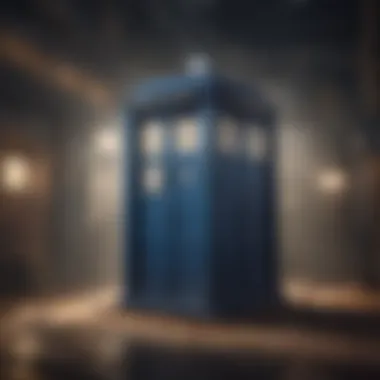
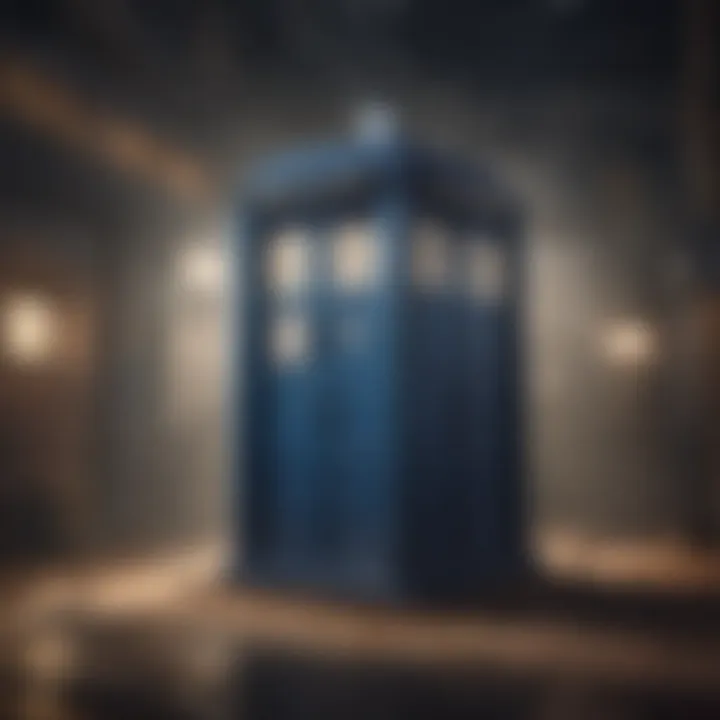
In sum, balancing these methods not only enriches the viewer experience but also emphasizes the themes of choice and consequence that Dr. Who is known for. It invites viewers to engage with the narrative on multiple levels.
"Dr. Who's structure of intertwining episodic and serial elements draws viewers into a world where every adventure has significance and teaches a lesson—but in a way that's not always preachy."
This intricate narrative structure not only showcases its historical pedigree but echoes the complex nature of existence itself, reaffirming that storytelling can be both entertaining and enlightening, leaving viewers with lingering thoughts long after the credits roll.
Character Development and Evolution
The world of Dr. Who is not just a tapestry of thrilling plots and engaging scientific concepts; it is, at its core, a rich exploration of character development. The journey of the Doctor and their companions is a mirror through which many viewers find reflections of their own lives. In this section, we will peel back the layers of character intricacies, shedding light on how each character shapes and reshapes the narrative’s depth. The evolution from a simple alien hero to a complex protagonist speaks volumes about the nature of identity, morality, and growth, giving creatives a goldmine of material to work with.
The Doctor: A Complex Protagonist
Regeneration and its Implications
One unique trait of the Doctor is regeneration. This ability allows for a rejuvenation of the character, which has been pivotal to the show's lasting appeal. Each incarnation of the Doctor brings a distinct personality and set of quirks, letting the show reinvent itself while preserving its foundational ethos. The key characteristic of this regenerative trait is the seamless transition it allows for diverse expressions of the character’s will, ideals, and emotional nuances. By doing so, Dr. Who captures the essence of change and highlight how personality can evolve over time.
The benefit of using regeneration is immense, not only keeping the show fresh but also providing a broad spectrum to explore themes like identity and mortality. It grants writers the canvas to address the Doctor's complexities in various dimensions, often reflecting societal changes and personal growth. However, it can also be a double-edged sword, as fans sometimes struggle to accept new representations that diverge from their beloved portrayals.
The Doctor's Morality
The Doctor exists in a liminal space between hero and anti-hero. Choices made often dance with moral grayness, leading to intricate discussions surrounding responsibility and moral obligation. Highlighting the key characteristic of the Doctor's morality, one sees a tendency towards empathy rather than strict adherence to rules—often placing the worth of life above regulations.
This moral complex creates a fertile ground for discussions about consequences of actions and the responsibilities that come with immense power. It plays a crucial role in how viewers interpret right and wrong in an ever-changing world, prompting reflections on their values. While this moral ambiguity can enrich character interaction, it occasionally alienates audience segments who prefer clearer lines between good and evil.
Companions: The Heart of the Series
Roles and Representations
Companions serve as vital conduits of knowledge, empathy, and emotional exploration in Dr. Who. They frequently serve as mirrors to the Doctor’s actions, creating a balance that humanizes the narrative. The key characteristic of these roles is their diversity; companions are not a monolith, but rather a tapestry of background and experience that enriches every episode they appear in.
This representation is a beneficial element as it validates a range of audience experiences and fosters inclusivity. It underscores the idea that heroism can come from many forms, emphasizing that ordinary individuals can achieve extraordinary feats. However, there can be overreliance on certain tropes, where character development risks falling into familiar patterns, potentially creating missed opportunities for deeper storytelling.
Character Arcs
Character arcs among companions in the series illustrate the organic nature of growth as deeply intertwined with the narrative. Whether it's the triumphant return of a beloved character or the tragic exit of another, these arcs depict a realness that resonates with audiences. The unique feature of these arcs is their sculptural fluidity; they adapt to series shifts and audience reactions, often showcasing redemption, survival, and personal growth.
This approach not only strengthens the story but also reinforces the emotional stakes, connecting viewers to the experiences of the companions. While such depth in character arcs often leads to satisfying narratives, it can also result in inconsistency if not carefully managed. Nevertheless, the emotional investment viewers place in these characters underscores their importance to the overall storytelling.
"The characters are the heart of Dr. Who, proving that even in the vastness of space and time, the human experience remains intimate and relatable.
Thematic Exploration
The exploration of theme within Dr. Who serves as a cornerstone for understanding its broader impact. Themes interlace the narrative with both moral and philosophical questions, creating layers beneath the surface of timey-wimey storytelling. They encourage viewers to reflect on their own lives and society at large. Importantly, it's not just the stories themselves that matter, but how these stories connect to real-world dilemmas. The show operates in an expansive universe where every twist and turn invites us to ponder on significant issues like morality, our relationship with technology, and the consequences of our choices.
Science and Ethics
Science fiction often dances on the edge of speculation about scientific advancements and their potential ethical quandaries. In Dr. Who, this is articulated vividly, examining not just the fun of time travel but also its ramifications. For instance, the concept of altering timelines raises the question of whether we should manipulate the past. The Doctor is often faced with decisions that push the moral envelope—choosing between saving one life versus the fate of millions. This kinds of dilemmas not only keep the audience engaged but also compel them to consider their own ethical beliefs amidst rapidly advancing technology and scientific exploration.
Beyond just time travel, these narratives explore issues like artificial intelligence, where sentient computers raise questions of rights and identity. The series prompts the question: What does it mean to be human? Here, the ethical lens of the series becomes even more vital as it challenges viewers to think critically about scientific progress.
Societal Reflections
Dr. Who not only entertains but also holds up a mirror to society—reflecting its dynamics, struggles, and advancements. By delving into various societal structures and changes through the lens of adventure, the show opens up conversations about prevailing norms.
Gender Dynamics
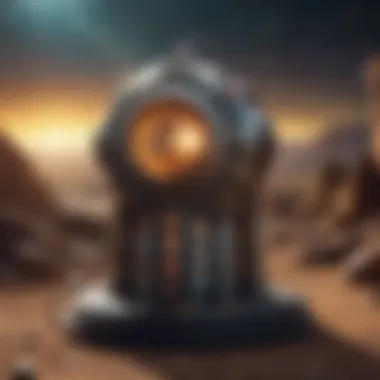

A pivotal aspect of Dr. Who has been its treatment of gender throughout its run. The portrayal of female characters has evolved significantly, from secondary roles to prominent protagonists in their own right. The transition to a female Doctor was a monumental moment, emphasizing the gender dynamic in a traditionally male-dominated narrative. This shift not only appealed to a broader audience but also signified a cultural readiness to embrace diverse representations.
The key characteristic of this evolution lies in its progressive approach to gender. Dr. Who challenges the stereotype that adventure or heroism is best suited for a specific gender. The series has showcased female companions like Clara and Yasmin, who exhibit complexity, intelligence, and strength. Their character arcs often parallel the social changes surrounding gender equality, making the choice of focusing on these dynamics highly relevant.
This representation has not been without its challenges, evidenced by occasional backlash from die-hard fans or those resistant to change. However, the advantages in promoting inclusivity and broader audience engagement are undeniable. Through Dr. Who, the conversation about gender evolves, advocating for equality while enriching the narrative landscape.
Cultural Diversity
In addition to gender, Dr. Who actively demonstrates cultural diversity. As the Doctor hops across time and space, so too does the show explore various cultures, histories, and contexts. This cultural dialogue contributes to the show's enduring quality and its ability to resonate with a global audience. The show's willingness to incorporate characters from varied backgrounds allows it to break cultural barriers and reflect a modern, interconnected society.
The key characteristic of cultural diversity in Dr. Who lies in its celebration of differences. It emphasizes that heroism does not belong to any single culture but transcends boundaries. From the introduction of Martha, the first female Black companion, to diverse aliens and human races featured in the series, the show promotes understanding and acceptance.
The unique feature of this diversity is its role in enriching the storytelling. Each character and cultural backdrop contributes unique perspectives that drive the plot forward. However, like with any narrative tackling cultural representation, there are risks. Misrepresentation or superficial portrayals can lead to criticism. Addressing these concerns proactively is vital. Yet, overall, the strategic inclusion of diverse characters adds layers of depth to the show, reinforcing its relevance and cultural significance.
"The beauty of Dr. Who lies not just in the journeys through time and space, but in the continuous evolution of its themes, which echo the complexities of humanity itself."
Engaging with these themes ultimately showcases how Dr. Who is more than mere entertainment; it's a poignant commentary on science, ethics, and societal constructs. These explorations not only enrich viewer experience but also ensure its legacy as a show that provokes thought and discussion.
Visual and Aesthetic Elements
The visual aesthetic of Dr. Who plays a crucial role in establishing its unique identity in the realm of science fiction. From its inception, the series has captivated audiences not just through storytelling but also by creating a visually rich universe that invites viewers into its fantastical worlds. Production design and special effects are paramount in shaping how viewers perceive the show, making it an essential component of its enduring legacy.
Production Design and Its Impact
The production design of Dr. Who is essential in crafting the narrative's immersive experience. Each setting—whether it is the cold metallic corridors of a spaceship or the historic streets of Victorian London—offers layers of visual storytelling. The TARDIS itself, with its iconic blue police box exterior and multifaceted interior, serves as a symbol of adventure and mystery.
One critical aspect is the way in which the design reflects the themes of the series. For instance, the contrast between the vibrant, often pastoral landscapes of alien worlds and the grimy, mechanical environments of dystopian futures amplifies the show's exploration of hope versus despair. Elements such as color palettes, props, and costumes all contribute to the show's ability to evoke emotions in its audience.
Moreover, while earlier seasons relied heavily on creativity and ingenuity due to budget limitations, this restriction often birthed innovation. For example, the use of everyday objects to create alien devices or creatures showcased the production team's resourcefulness.
- Budget constraints: Inspired creativity in production design.
- Symbolic elements: Visuals reinforce narrative themes.
- Diverse settings: Each location adds depth to the story.
"The TARDIS is a time machine that offers endless possibilities for design. Its interior plays with perception and expectation, reflecting the show's boundless nature."
Special Effects Evolution
The evolution of special effects in Dr. Who reflects broader technological advancements in the entertainment industry. In the earlier seasons, special effects might have seemed rudimentary, occasionally relying on string puppets and viewable models for creatures and spaceships. However, as the series progressed, the integration of cutting-edge CGI transformed how stories were told on screen.
With each revival of the series, there has been a marked improvement in visual effects that not only enhance the storytelling but also draw in new generations of fans.
- Before: Basic techniques relying on practical effects and props.
- Now: Sophisticated CGI that creates lifelike creatures and expansive landscapes.
Further, the ability to create complex creatures and vivid worlds through technology means Dr. Who can continuously push boundaries. Whether it's the chilling Weeping Angels or the vibrant landscapes of other planets, special effects have become a vital storyteller in their own right, adding richness and depth to the narrative.
In essence, the visual and aesthetic elements of Dr. Who are foundational to its appeal, creating a vivid landscape that not only tells a story but also invites viewers into a vast universe filled with wonder and complexity.
Dr. Who's Influence on Popular Culture
The cultural footprint of Dr. Who extends far beyond its television origins. To truly appreciate its impact, one must explore multiple dimensions, including references in other media and the passionate communities that continue to thrive worldwide. The show's capacity to inspire various forms of art and expression speaks volumes about its lasting appeal and adaptability in an ever-changing cultural landscape. This section uncovers the layers of influence that Dr. Who has imprinted on modern society, making it a key subject of discussion in contemporary cultural studies.
References in Other Media
Over its long run, Dr. Who has inspired countless creators across different platforms. The series' unique blend of science fiction and drama has led to references in movies, literature, and even video games. For instance, many authors cite the show as pivotal in their own narratives, infusing their work with its distinct themes of adventure, exploration, and moral dilemmas.
- Television and Film: Shows like The Simpsons and Community have offered parodic nods, weaving elements of Dr. Who into their own plots. Notably, The Simpsons featured a full-blown episode titled "Treehouse of Horror XXVII," which included time travel shenanigans reminiscent of the series.
- Literature: It’s also found in the pages of novels, particularly in the works of Neil Gaiman. In "The Ocean at the End of the Lane," some narrative similarities echo the time-bending experiences of Dr. Who.
- Video Games: Games like The Eternity Clock directly involve the Doctor in adventures that align tightly with the show’s ethos.
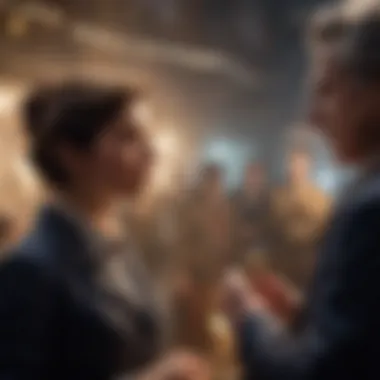

These references are like breadcrumbs leading fans to the profound influence Dr. Who has left on various forms of entertainment. It’s a testament to how deeply embedded the series has become in popular consciousness.
Fandom and Community Engagement
Perhaps one of the most vibrant aspects of Dr. Who is its dedicated fanbase. The Whovians, as they call themselves, embody the spirit of creativity and collaboration. Their engagement forms an intricate web of community dynamics that enriches not only the show's legacy but also the broader cultural discourse.
- Conventions: Events such as Gallifrey One and WhoCon serve as meeting points for fans, offering them a space to connect over shared experiences. Here, they discuss theories, celebrate favorite episodes, and often dress up as their beloved characters.
- Online Communities: Websites like Reddit feature dedicated subreddits where fans dissect episodes, develop fan theories, and create elaborate fan art. These spaces propagate discussions that keep the enthusiasm alive long after the credits roll.
"A show can endure for decades, but a community provides the lifeblood that keeps it thriving."
- Fandom Creations: The creativity doesn’t stop at discussions. From fan fiction to YouTube channels analyzing every detail, the Dr. Who community continuously churns out content. The stories and characters have birthed numerous sub-genres, showcasing how participative culture can reshape canonical narratives.
In summary, the impact of Dr. Who on popular culture is multifaceted. Its references across various media enrich the narrative landscape, while the enthusiasm of its fanbase sustains its relevance today. By examining these aspects, one can see why Dr. Who remains a pillar in the realm of popular entertainment.
The Future of Dr. Who
The future of Dr. Who is not just a series of episodes waiting to be filmed. It's a complex tapestry woven from its past and a promising array of threads that signal what lies ahead. As fans eagerly await new stories, the question looms: how will the show adapt to the shifting landscape of entertainment? This section aims to dissect the significance of upcoming developments, emphasizing growth, creativity, and how the series can continue captivating generations.
Upcoming Generations of The Doctor
The regeneration of The Doctor has always been a clever narrative device, allowing the character to evolve while retaining core qualities that define them. With each new incarnation, fresh interpretations breathe new life into the role. This evolution invites audiences to grow alongside the Doctor, forging connections and exploring themes that reflect contemporary issues.
Recent announcements about the casting of new Doctors stir excitement and apprehension. Will the upcoming generations tap into current socio-political themes? Potential candidates might bring diverse backgrounds and perspectives, enriching the narrative fabric. Speculation about widespread issues such as climate change, identity, and technology’s role in society could influence storytelling significantly.
"To some, the Doctor is a hero from another world; to others, a reminder of the struggles we face within our own."
Each new actor has the potential to introduce unique strengths. This possibility of reinvention keeps the show fresh; everything indicates that the franchise can resonate with audiences in ways that adapt to their evolving sensibilities.
Continuation of the Series
As Dr. Who prepares for its next chapters, the continuation of its narrative becomes pivotal. The series has shown resilience, bouncing back from hurdles over decades. It is intriguing to ponder how the stories will evolve to encompass not just timeless themes but also timely narratives reflecting our societal challenges.
The show's continuation likely hinges on balancing nostalgia with innovation. It’s about striking the right chord where longtime fans feel respected while new viewers find compelling entry points. The integration of iconic villains alongside fresh adversaries could offer a mix of familiarity and surprise.
Moreover, coalescing with advancements in technology, the series can harness virtual reality or interactive storytelling as ways to engage viewers on a deeper level. That’s to say, the traditional viewing experience might morph into a more immersive participation—viewers could decide paths within episodes, influencing outcomes in a unique narrative blend.
In summary, upcoming generations of The Doctor and the path ahead for the series itself suggest an exciting, transformative future. By examining the intertwining threads of legacy and innovation, it becomes evident that Dr. Who's journey is far from over. The show's evolution will continue to reflect the complex nature of time and society, making its future one worth watching.
Finale
The conclusion of this article serves as a vital touchstone, underscoring the importance of Dr. Who in the realm of television and popular culture. It encapsulates how this series, crafted with a unique blend of science fiction and human experience, has not only entertained but also provoked thoughtful discussions across a spectrum of societal issues. Delving into the narratives, characters, and the implications of time travel, one can draw connections between the show's storylines and real-world events, making it a lens through which viewers can examine their lives and societies.
The Enduring Legacy
Dr. Who boasts an enduring legacy that is rooted in its ability to adapt and evolve over decades. From the humble beginnings of a quirky 1960s British television show to a global cultural phenomenon, its legacy intertwines with the changing landscapes of storytelling and audience engagement. The narrative device of regeneration has become emblematic of this adaptability, allowing fresh interpretations of the Doctor while retaining core elements cherished by fans.
"Dr. Who continues to resonate because it captures the essence of exploration—both of the universe and of the self."
Key aspects of its legacy include:
- Innovative Storytelling: The choice of time travel not only captivates viewers but also provides a versatile foundation for narratives that range from light-hearted to deeply philosophical.
- Cultural Symbol: The Doctor has emerged as a metaphor for change, embodying principles of tolerance, compassion, and justice, all while engaging with pressing contemporary issues.
- Fandom and Community: The vibrant global fanbase adds layers to the legacy, creating a community that spans generations, subtly influencing the way the series is perceived and enjoyed.
Cultural Relevance Moving Forward
As we gaze into the future, the cultural relevance of Dr. Who remains strong. With the reshaped landscape of media and an ever-diversifying audience, its ability to mirror societal evolution cannot be understated. Upcoming series iterations are likely to explore themes that resonate more profoundly with current societal dynamics, such as digital ethics, climate change, and identity politics.
In highlighting these points, one should consider the following:
- Diverse Storytelling: Future Doctors and companions should reflect a multiplicity of identities, experiences, and introspections, keeping the narratives relatable to a broader audience.
- Integration of Technology: With the meteoric rise of technology and digital media, the series can embrace new formats and platforms, reaching audiences wherever they consume content.
- Enduring Themes: As society grapples with constant change, the underlying motifs of hope, resilience, and human connection in Dr. Who will remain salient, lending the series an ageless quality that invites both nostalgia and forward-thinking engagement.
In summary, encapsulating the discussion in this conclusion highlights Dr. Who as more than merely a TV show. It is a cultural artifact that continues to evolve, challenging viewers to ponder both their universe and their inner selves while providing a rich narrative that entertains and teaches.



